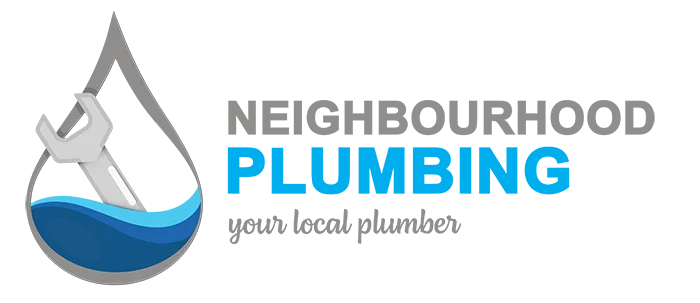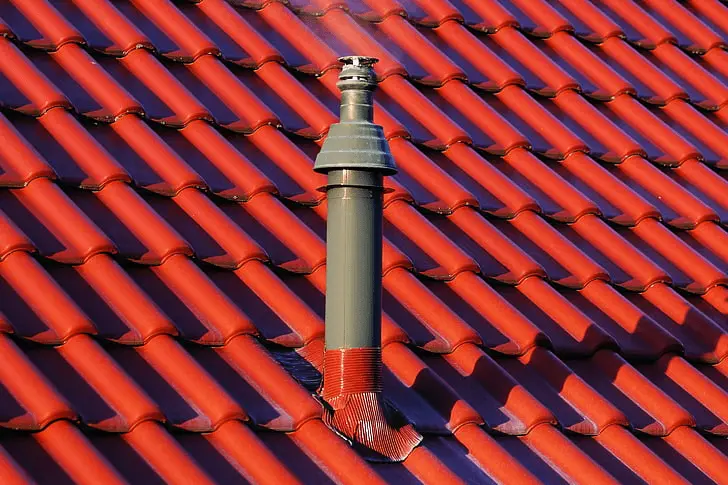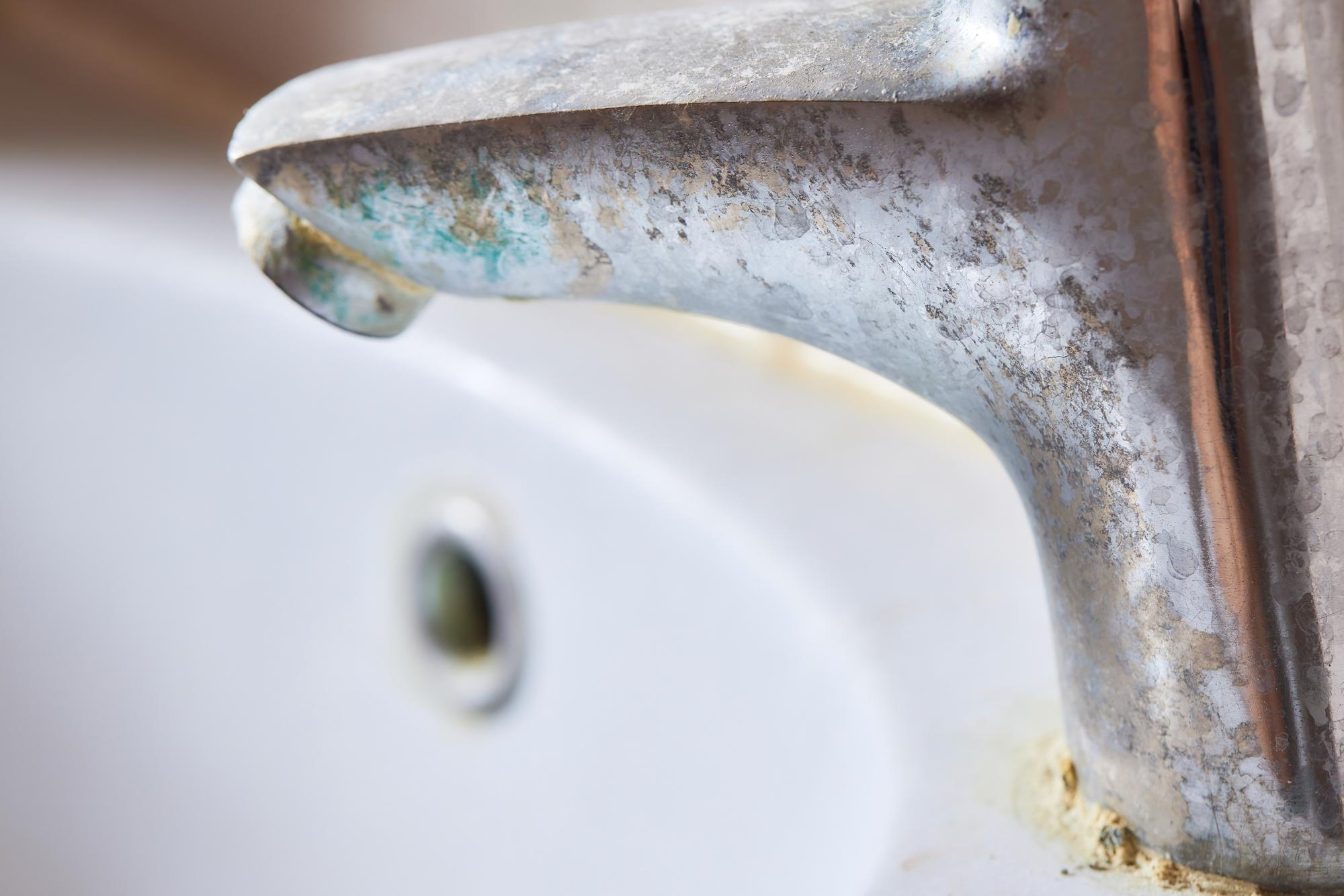
How many times have you scrolled the internet searching for how to unblock a shower drain? Likely countless times, as blocked drains are a recurring issue. One of the most common solutions you may come across is using a baking soda and vinegar drain cleaner. But does it truly work?
You need more than just a DIY hack to address the primary problem and related issues, such as a smelly bathroom drain. Let’s delve into the details and find out how!
Why You Should Never Use Baking Soda and Vinegar to Unclog a Drain
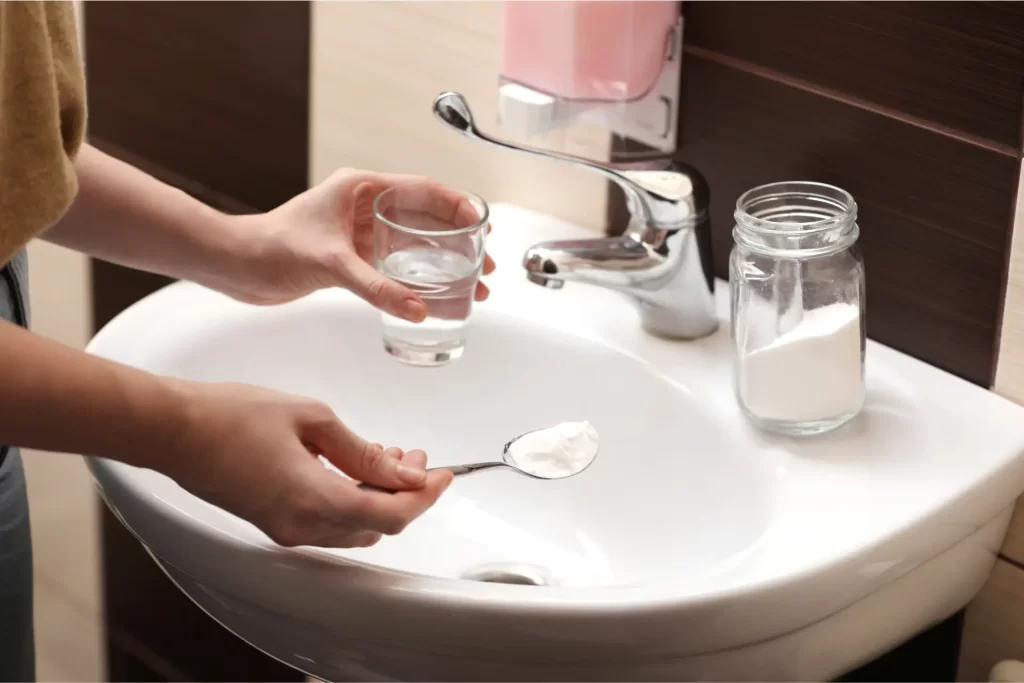
While the internet abounds with suggestions for cleaning drains with baking soda and vinegar, clogs often lead to gurgling drains, which is a sign of a more serious issue.
Here are three reasons why attempting to fix a blocked and overflowing drain with those materials will likely do more harm than good.
1. Limited Effectiveness
The fizzing reaction that occurs when baking soda (natrium bicarbonate) and vinegar combine is due to a neutralization process, which produces carbon dioxide gas and water. This reaction creates a lot of bubbles and fizz, which can sometimes help to dislodge minor blockages near the surface of the drain.
However, this reaction isn’t strong enough to tackle stubborn clogs deep within your pipes. It’s almost as ineffective as pouring the boiling water down the drain.
This is not how to unblock shower drain. Deep-seated blockages caused by hair, grease, or other debris often require more robust mechanical or chemical solutions that can effectively reach and break down the material.
2. Potential for Damage
The same chemical reaction that produces the fizz also generates carbon dioxide gas. This gas buildup can create pressure in a confined space, such as a narrow drain pipe. Although uncommon, the pressure could theoretically lead to a crack and potentially dangerous explosion if the gas cannot escape.
This risk is particularly concerning in old or compromised plumbing systems, where the pressure from the gas could crack or further damage already weakened pipes, leading to a bigger mess.
The chance of an explosion or significant pressure buildup is low, but it’s a potential risk to be aware of when frequently using this method. The damage could be immediate or gradually worsen, requiring extensive and costly repairs.
This is why you should never use baking soda and vinegar to unclog a drain. The risk is not worth taking.
3. Accelerated Corrosion
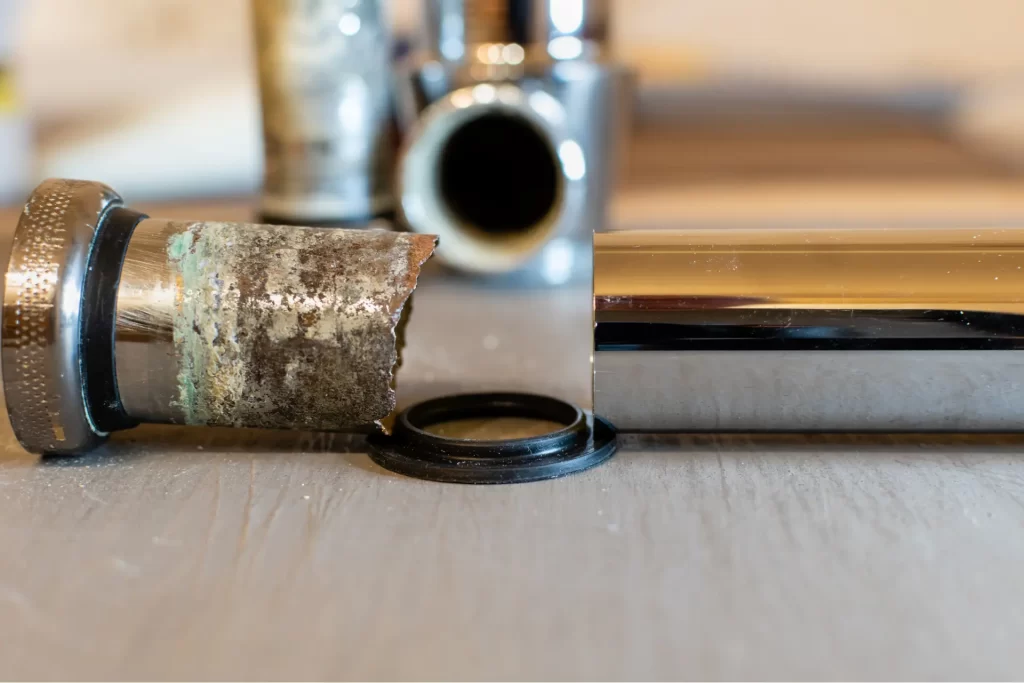
‘If your home has an older plumbing system with metal pipes, cleaning drains with baking soda could be particularly detrimental.
The acidic nature of vinegar, coupled with the salt component of baking soda, can accelerate the corrosion of these metal pipes.
Metal pipes, especially those made of iron or steel, are susceptible to rust and corrosion when exposed to acids and salts.
Over time, repeated exposure to these substances can weaken the structural integrity of the pipes, leading to leaks or bursts. This accelerated corrosion shortens the lifespan of your plumbing system and increases the likelihood of severe plumbing issues that require significant repairs or replacements.’
Why Does Baking Soda and Vinegar Not Work on Drains?
While many people are tempted to clean their drains with bicarb and vinegar, the effectiveness of these methods is limited.
One major issue is that the clogs are too thick for this combination to work effectively. Even though you know how to unblock the sink with baking soda, the mixture might not penetrate deeply enough into the blockage.
Additionally, grease and soap scum can create barriers that the chemical reaction between baking soda and vinegar cannot break down.
Alternative methods may be more effective for thick or stubborn clogs than simply cleaning the drain with vinegar and baking soda.
Therefore, understanding how to clean the drains with baking soda often involves knowing when to employ stronger mechanical or chemical solutions.
Will Baking Soda and Vinegar Damage PVC Pipes?
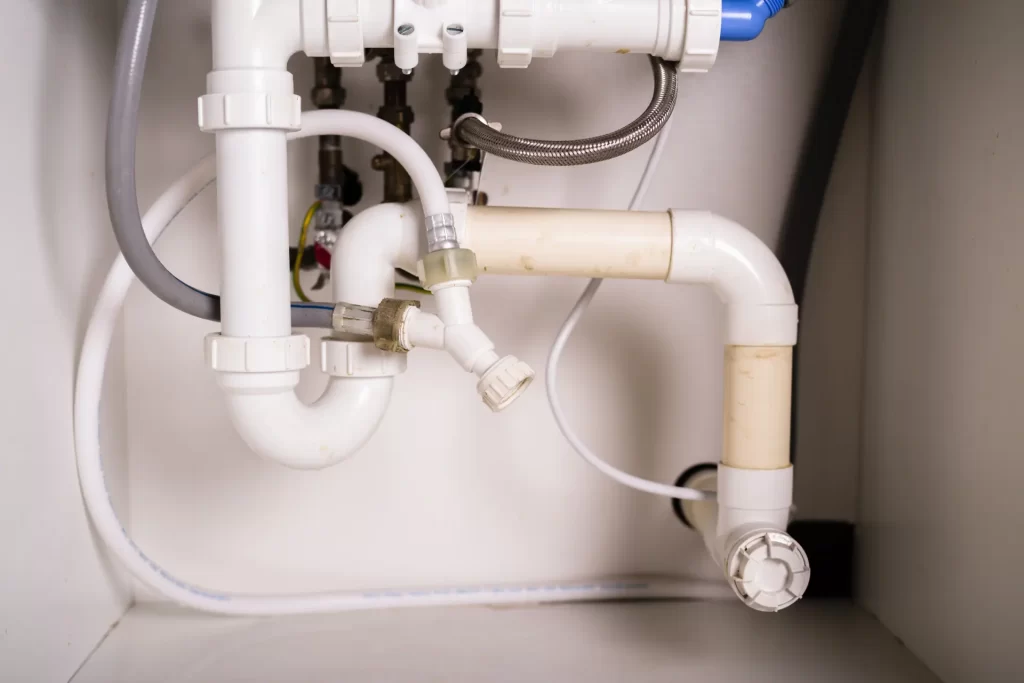
Cleaning drains with baking soda might be damaging for metal plumbing pipes, but what about PVC? When baking soda and vinegar combine, they produce carbon dioxide gas and water through a chemical reaction.
While this reaction can help to dislodge minor clogs, it does not generate enough heat or produce chemicals that react with PVC. PVC pipes are resistant to chemical reactions, which means it is safe to unclog drains with baking soda.
Alternatives to Baking Soda and Vinegar
The method to clean the drain with bicarb vinegar is so yesterday! Here are several ways to unblock the drain, incorporating dishwashing detergent and water, boiling water, a plunger, a hook from a metal hanger, and calling a professional plumber.
Combine the Dishwashing Detergent and Water
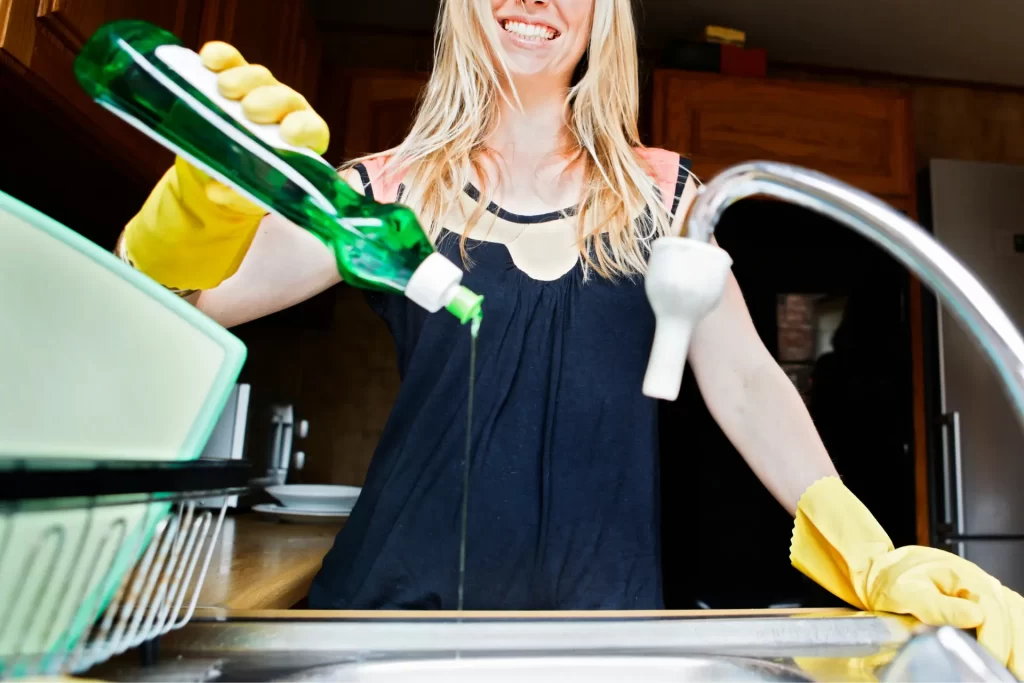
One effective method for clearing clogged drains involves using dishwashing detergent and water. This is particularly useful for grease clogs.
Start by pouring a good amount of dishwashing detergent down the drain. Leave it for around 20 minutes or more. Follow this with a kettle of hot water.
Unlike the common practice of cleaning drains with baking soda, this method is less abrasive and perfectly safe for most plumbing systems.
Utilise a Plunger
A plunger is a classic tool for unclogging drains and works by creating a vacuum to dislodge the clog. Ensure enough water is in the sink or toilet to cover the plunger’s rubber cup. Place the plunger over the drain and pump vigorously. The pressure created will often push the blockage through the pipe.
This method is particularly effective for toilet drains and is a reliable alternative to chemical drain cleaners. While plunging, some may combine it with other methods, such as dishwashing detergent, for a more comprehensive approach.
Install a Cleanout
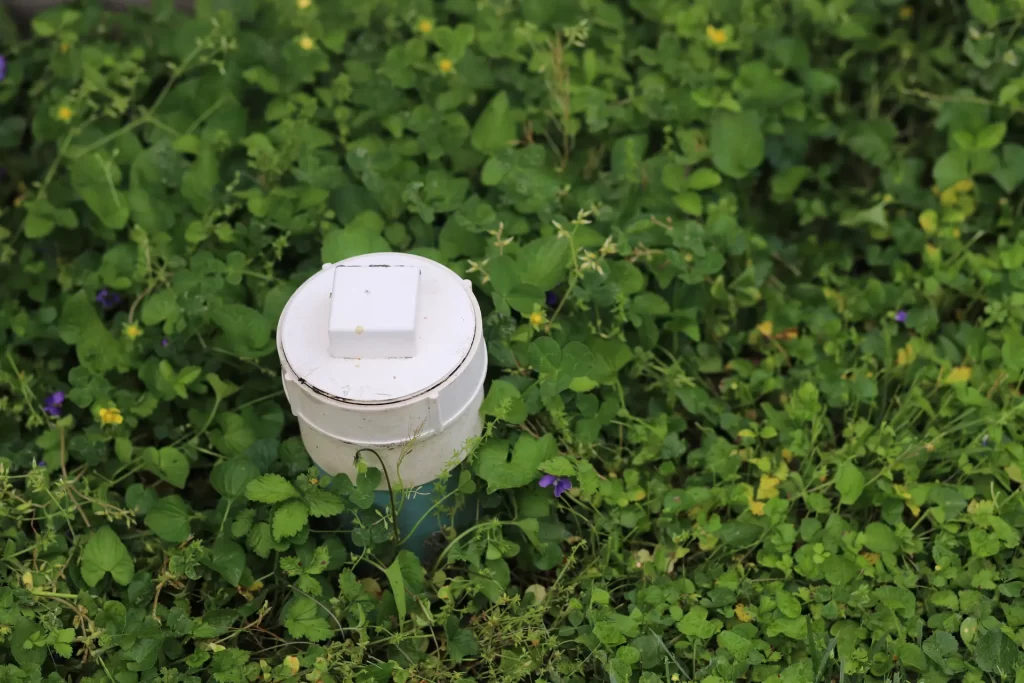
It is important to adopt a methodical approach to effectively address sink blockages caused by dish soap accumulation atop existing grease build-up. Dish soap can be as bad for draining as grease itself. While the use of hot water may provide temporary relief, the blockage is likely to recur within a week.
The proper and lasting solution involves installing a cleanout and using an auger or snake to clear the pipe. Once the water flow is restored, hot water should be run through the drain, followed by another pass with the snake. This method ensures a thorough resolution to the issue.
Call a Professional Plumber
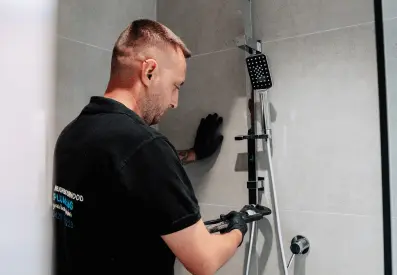
Calling a professional plumber is often the best solution when all else fails. Plumbers have the expertise and tools necessary to handle severe blockages that home remedies cannot resolve.
They can use specialized equipment like drain snakes, hydro-jetting, and even cameras to diagnose and fix the problem efficiently.
While it may be tempting to rely on household items like dishwashing detergent and water or boiling water, some clogs require professional intervention to prevent damage to your plumbing system.
Conclusion
While the traditional methods of cleaning drains with baking soda are popular, those alternatives offer practical and often effective solutions. However, persistent issues may require professional help. For reliable, long-lasting solutions, contact Neighbourhood Plumbing.
Our experts can effectively handle all your drain and plumbing problems, ensuring your system stays in shape. Call us today for prompt and professional service!
About the Author
From unclogging the toughest drains to repairing leaking toilets, Ricky is a seasoned plumber who has brought his craftmanship to homes across Melbourne. He is passionate about sharing plumbing tips just as much as he is about fixing your plumbing issues. So, when your taps or pipes begin leaking, you know who to call.
